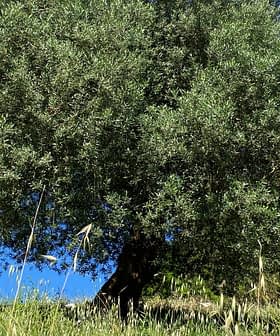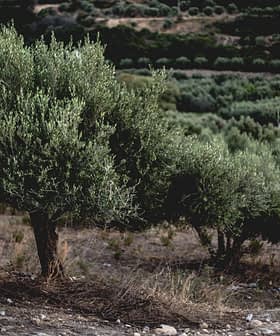The International Olive Council (IOC) has agreed to incorporate the World Olive Germplasm Bank into the International Treaty on Plant Genetic Resources for Food and Agriculture.
The treaty, also signed by the Spanish Ministry of Agriculture, Fisheries and Food and the United Nations Food and Agriculture Organization, plays an important role in preserving agricultural biodiversity on a global scale and ensuring fair and equitable distribution.
“The International Treaty on Plant Genetic Resources for Food and Agriculture establishes a multilateral system to facilitate access to plant genetic resources for food and agriculture and to share in a fair and equitable way the benefits arising from their use,” said Lhassane Sikaoui, the head of the IOC’s olive growing, olive oil technology and environment unit
See Also:Discovery of New Olive Varieties in Italy Spurs App Development“It provides for ex situ collections of plant genetic resources for food and agriculture held by international agricultural research centers and other international institutions,” she added.
According to Sikaoui, the treaty establishes an effective cooperation strategy among member countries with their own germplasm banks and IOC-sanctioned collections to exchange genetic material for scientific and practical purposes and develop a global conservation strategy.
Many IOC member countries have their own national collection of olive genetic resources. The council has also created six international olive germplasm banks in Córdoba, Spain; Marrakech, Morocco; Izmir, Turkey; San Juan, Argentina; Israel’s Volcani Institute; and Italy’s Council for Agricultural Research and Analysis of Agricultural Economics.
“The Spanish government was the first to respond, expressing interest in having the Olive Germplasm Bank of Spain, with its different collections of the Andalusian Institute of Agricultural and Fisheries Research and Training (IFAPA) and the University of Córdoba, recognized under the treaty,” Sikaoui said.
“The first agreement was signed on June 14th at the Spanish Ministry of Agriculture and Fisheries headquarters,” she added. “Other countries, such as Morocco, have also expressed interest in signing an agreement with the treaty.”
Sikaoui said the next steps in implementing the treaty will involve developing a database of all the genetic material from each collection and germplasm bank.
“The data accumulated over time will contribute to the development of a database on the characteristics of various early varieties, which are the focus of the IOC’s True Healthy Olive Cultivars project and are housed in the repository at the University of Córdoba,” she said.
“The strengthening of this network will serve as a global resource accessible to the scientific community and provide nurseries with a source of healthy and authentic material for end users,” Sikaoui added. “Consequently, this will enable the sector to access varieties better suited to the evolving climatic conditions.”
The impacts of climate change on olive growing remain a pervasive concern for farmers. Sixty-three percent of respondents to the 2023 Olive Oil Times Harvest Survey cited climate change as their top concern.
Respondents cited excessive heat, drought and rain as the main factors impacting the 2023 harvest. While no single climatic event can be attributed to climate change, rising global temperatures increase the likelihood of extreme climatic swings.
“The olive grove is at a historic moment in which it is facing great challenges,” Sikaoui said. “The climatic conditions in which this crop develops are changing rapidly, and we need to adapt it to these new scenarios.”
“Varietal genetic improvement is one of the main adaptation strategies for facing the challenges posed by climate change – varieties resistant to pests and diseases, adapted to high temperatures during flowering and less accumulation of cold hours in winter, drought, etc.,” she added. “We are also witnessing a significant process of genetic erosion: three out of every four hectares of new olive plantations come from a single variety.”
Along with increasing the ability for scientists to study olive genetic material and farmers to experiment with new types of olives, the partnership would also highlight the efforts of donors, who have provided funds and genetic material to germplasm collections over the years.
Sikaoui said the IOC is looking forward to discussing the treaty with members and beginning to develop a global strategy to conserve olive genetic heritage and exchange genetic material.
“To this end, an international workshop on olive plant genetic resources is scheduled to take place in April 2025 in Marrakech,” Sikaoui said. This workshop will address various issues, including the network’s operational framework and the formulation of a global strategy for preserving, maintaining, and enhancing olive plant genetic resources.”








